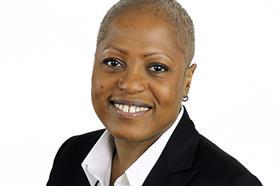As the Scottish parliament raises the age of criminal responsibility to 12, the law in England and Wales becomes even more isolated from the rest of the western world. The Equality and Human Rights Commission, in relying on the United Nations Convention on the Rights of the Child (UNCRC), a convention to which we are a signatory, continues to criticise the UK in no uncertain terms regarding our failure to raise the age from 10 (the lowest in the region) to 14.

We almost seem to take pride in bucking the international norm and rejecting the expert evidence that tells us 10 years old is too young to fully understand the criminal consequences of behaviour, even if a 10-year-old can superficially tell the difference between right and wrong. Even the higher threshold to be applied in Scotland is viewed by the UN as below the bare minimum.
The ability to objectively debate this topic is intrinsically bound up in our collective horror at isolated but shocking examples of serious offences committed by children under the age of 14. We can all agree that what happened was criminal. We also know that these cases are exceptional. However, what we cannot now know with any certainty is the extent to which any offences that follow are caused by the brutalising effects of growing up in custody; whether we as a society have contributed to further impoverishing their experience and diminishing the opportunities for these children to reach their potential.
The Law Commissioner Professor David Omerod has already recommended a defence of ’developmental immaturity’ when considering the offence of murder. This is predicated on the body of overwhelming evidence to show that children are not ’mini adults’. Their brains and therefore their ability to predict consequences mature over time and do not reach full maturity until 25 years old.
We know this. For instance, let’s take a classic example I heard recently - the approach to punishment for a 10-year-old who kicks a ball and breaks a window while playing might properly be expected to be different than if I did the same thing. The difference in culpability arises from the fact that we plainly have different perceptions of consequences. I would know and understand the risk; most 10-year-olds would not. It’s so obvious, it hardly needs saying.
We see this reflected in so many areas of our society. Children are not allowed to vote or marry. Some rights and responsibilities are deferred until late childhood, e.g. driving or the ability to consent to sexual conduct. We ‘deny’ or ’protect children from’ these rights and responsibilities as we opine that they are not sufficiently mature to understand the consequences of their conduct. Why then, when it comes to criminality, do we feel a 10-year-old is able to withstand a combative police interview under caution? Or that a 12-year-old is able to give their best account by giving evidence in an adversarial trial system designed for adults - the most significant but nevertheless limited concession being the court door is closed to the public (but not the media). This is the same 12-year-old which the Sexual Offences Act 2003 (rightly) says is incapable of giving informed consent to sex. The contradiction is plain.
The reality is that our failure to adopt a more proportionate approach to dealing with children in our criminal justice system continues to damn future generations who will have to deal with the fallout. Criminalisation fundamentally and adversely affects children’s biological, social, educational and psychological development at a unique time in their development. The damage done then can be irrecoverable. A welfare model (like that being considered in France for children up to 13) which seeks to support and guide children through this period is demonstrably more successful in allowing them to become law abiding, functioning, independent members of our society who are able to contribute positively for the rest of their lifetime, which we hope will be at least the next 60 years. This is particularly so under circumstances where we know that offending behaviour is usually a short lived transitory phase.
The alternative is that we continue as we are, investing huge amounts of money to criminalise and then incarcerate children. The return on that investment is a lack of education leading to unemployment, increased mental health difficulties adding more pressure on our health services, and social isolation which increases the fragmentation of our communities. That results in a future society where large sections have no reason or means to contribute constructively.
We could instead and maybe because of our collective memory of what has happened in the past, take up our moral and legal responsibility to see children as children, even those children who come into contact with the criminal justice system. I represent a wide range of children. Some well-educated and supported, some less so, on a range of matters from allegations of sexual misconduct, theft, through to county lines and murder. Without exception, each of them has potential which is capable of being nurtured. None of them should be written off before they are (at least) 14, preferably never.
Sandra Paul is a criminal defence partner at Kingsley Napley LLP
































2 Readers' comments